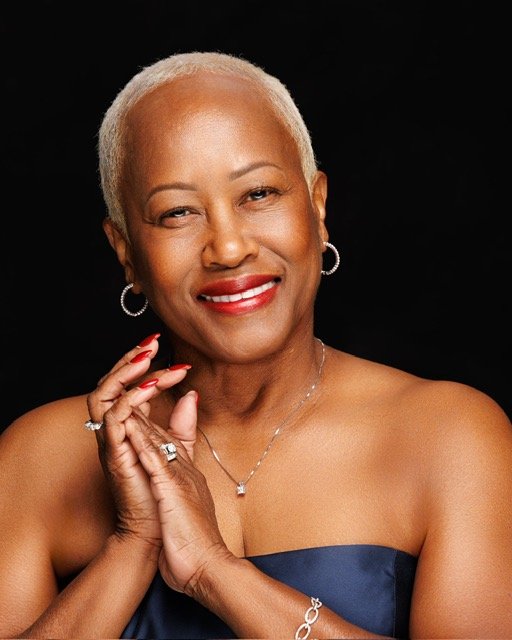CEO Finds Reward in Innovative Coding
For more than forty years, Stephanie Johnson-McKinney has brought both passion and patience into the practice of medical coding. Today, the CEO, CCS, AHIMA Approved ICD-10-CM Trainer of Innovative IRF Coding LLC takes great pleasure in the success stories of both facilities and patients.
Although it is a position that benefits just about everyone, the average person has little to no idea what coding entails. The job is very detailed; it’s very technical – long hours and attention to detail are imperative. But McKinney wouldn’t have it any other way.
The promise atop the landing page on her website reads:
Your Inpatient Rehabilitation Facility/Unit ICD-10-CM Coding
Success Story Starts Here!
It’s no suggestion. It’s not a sales gimmick. This is no false advertisement to garner her contracts. It’s a guarantee and likely the reason why most of McKinney’s clients choose to sign “recurring” contracts with her.
Medical coding is the transformation of healthcare diagnosis, procedures, medical services, and equipment into universal medical alphanumeric codes. Medical coding professionals help ensure the codes are applied correctly during the medical billing process.
“I don’t know every single code, but I can assess a case by looking at its medical history,” McKinney explains. “I’ve studied this for such a long time, and I never stop learning.”
It was the combination of a coding book and a medical dictionary that changed her life back in 1986. The 65-year-old mother, grandmother and great-grandmother went to school for nursing, but quickly decided that she didn’t want to “touch” patients, at least not physically. She instead wanted to help rehabilitate patients in other ways.
“I had a friend back in the 80s who had a sandwich shop,” McKinney recalls. “I managed the shop that sat near a hospital. Workers from the hospital would always come in and compliment me on how I interacted with the people dining in. They would all tell me that I should work in the hospital in some capacity.”
Soon, she was recommended for a job and taught to transcribe. Her first position was at Southwest Dallas Hospital, a structure that once sat on the corner of Madison and Jefferson Boulevard in the heart of Oak Cliff (Dallas).
“I have never had to interview for a job,” McKinney reveals. “It has always been word of mouth that landed me a new position.”
It was Health South for 15 years and then Health South Corporate. When she went to what she thought was an interview for Integra, the person sat beside her and said, “this is not an interview – I’m just trying to get to know you.”
If she ended a job on a Friday, she started another on Monday. “I never went without,” she reflects.
For 12 years, McKinney worked at Uniform Data Systems (UDS) for Medical Rehabilitation in Buffalo, New York. This was her favorite position. The University of Buffalo sold that division for $10 million after the pandemic.
“A company bought them out,” McKinney says. “I stayed for two months and then told them that they didn’t make probation. Jobs get to tell us that, so why can’t I?”
She left in March of 2022. In April - she registered a business. By July of that same year, she got her first client. By October – she had her second client. Today, rehabilitation facilities reach out to her because of the relationships she has built over the years. UDS catered to 85 percent of facilities in the United States, allowing her to cultivate such relationships. As a result - McKinney gladly travels, speaks, educates and never ceases to make key contacts.
“I’m not that know-it-all person, but I want to learn and so I ask questions,” McKinney explains. “At one workshop, I took over teaching because the instructor had to tend to a medical event. I crave opportunities to discuss coding and chances to cultivate relationships for my company.”
The business pays dividends, so of course there are those who want to join her team. McKinney, however, is adamant that not everyone can make the cut.
“There are programs out there suggesting to people that they can get into coding fairly easily,” she says. “A skillset and understanding of anatomy, physiology and pharmacology are all needed. One must be certified.”
Her team consists of eight coders, including herself. Although she is the boss, McKinney willingly covers her staff members if they’re sick or on vacation.
“This is a specialty. We can code four or five facilities per day because we have a system in place and it works,” McKinney explains. “We are remote medical workers, living all over the country. We have consultations with facilities and conduct audits to make sure they aren’t leaving any money on the table.”
Inpatient rehabilitation is incredibly important, as it involves intensive rehabilitation therapy while staying at a hospital or dedicated rehabilitation facility. McKinney works with stroke patients, individuals with hip fractures, hypertension and so much more. Her team must code these diagnoses based on medical documentation. A facility cannot bill for something coded incorrectly.
In addition to daily effort in coding, McKinney also delights in providing positional education. It’s a detailed job and incredibly intense, but she gets to help people, travel the world and most importantly – never stop learning.
“We have coded records for professional athletes and celebrities requiring inpatient rehab therapy, with pseudo names to protect their identity and their privacy,” McKinney shares.
Many of McKinney’s clients sign open-ended contracts that don’t end. Her team always takes a personal approach to each client and interacts as part of the facility's team.
“If they are unaware of a specific need, we assess the process and make recommendations with complete acceptance by the facilities," McKinney insists.

